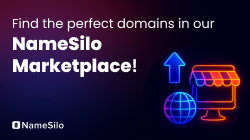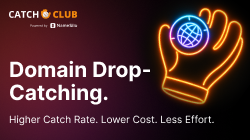Here are the problems I see with .eu (some have already been outlined by previous posters)
1. Availability: There has never been a new extension that has been more efficiently mined from Day 1 by big domain players rather than end-users (witness the 400+ registrars created just to increase Pool's chances of getting .eu domains, the thousands - or tens of thousands - of "fake" TM applications etc.) with over 1,250,000 domains registered within 72 hours. Net result: nothing exciting left for ordinary folk. If it's not "exciting" then why not just use .net, .info, .biz instead? What's better, a "great" .info or a "poor" .eu? (these are the kind of things that companies are going to have to ask themselves)
2. Geography: How many companies trade EU-wide but not worldwide? Can they be sure that will be true in the future too? Why not simply go with the cctld (this is where we're from) or the .com (we are global) if they're going to have to fork out a huge amount to get a decent .eu anyway?
3. Internet penetration: EU countries have some of the highest rates of internet use in the world. Most companies of any significant size already have online presences, and many have significant traffic and presence already. How many large but off-line companies are there? How many little companies are going to be able to afford the premium .eu names? Where is the growth going to come from to drive the .eu market? Ouch, there goes the resale market.
4. Language: English is not the common lingua franca of Europe, even though it may be used as such in some business contexts. Most major European companies translate their sites - ALL of the material - into 4, 5, 6+ languages since they recognize this. At the same time, companies are going to recognize their "home market" - so French companies or German companies are not going to buy domains that work in English but not in French or German. This makes domains that are the same in several (as many as possible) languages more valuable, but devalues the rest.
5. IDN: .eu is not the only "new chance" offered to European companies. If they're only trading within one country i.e. local businesses, then they can buy IDN .com domains - or at least, they can already buy them now and in the future they will be able to buy them and have anyone access them once IE7 is widespread. So suddenly you have the "perfect IDN .com" or "lousy eu" comparison for many languages which commonly use accents and other IDN-only characters (Spanish, German, French etc.)
6. User experience: seems likely that more people are going to stumble across .eu parking pages than just about any other extension. After all, over 1,200,000 domains have been registered to park (even if you generously assume the other 50,000 are "real"). That's most likely a higher parking ratio than just about any other extension, and the real figure is much worse since those 50,000 sites aren't going to build themselves overnight. So an average European reading about .eu in the Sunday papers tries half a dozen "word.eu" variants in their address bar out of curiosity, notes that ALL of them go to parking pages, and loses interest. Just another silly season idea...
7. Bad press: there has and will be a lot of column inches expended on the relative "fiasco" of the .eu launch. Non-domainers won't necessarily spend a lot of time looking for the back-story and the full details, they'll just note the issue as another "failed" idea and move on.
8. Negative connotations: many Europeans don't like the EU, and there's a % of such folk in EVERY EU country. Why risk offending them needlessly?
NOTE: the top couple of thousand or so generics are probably "immune" to all of the above, since they'll be "interesting" enough and attract enough incidental traffic to be valuable. But how many are owned by end-users? How many by individual domainers? Likely as not just about all of them are held by the same handful of big domain players, who don't typically sell or develop.








